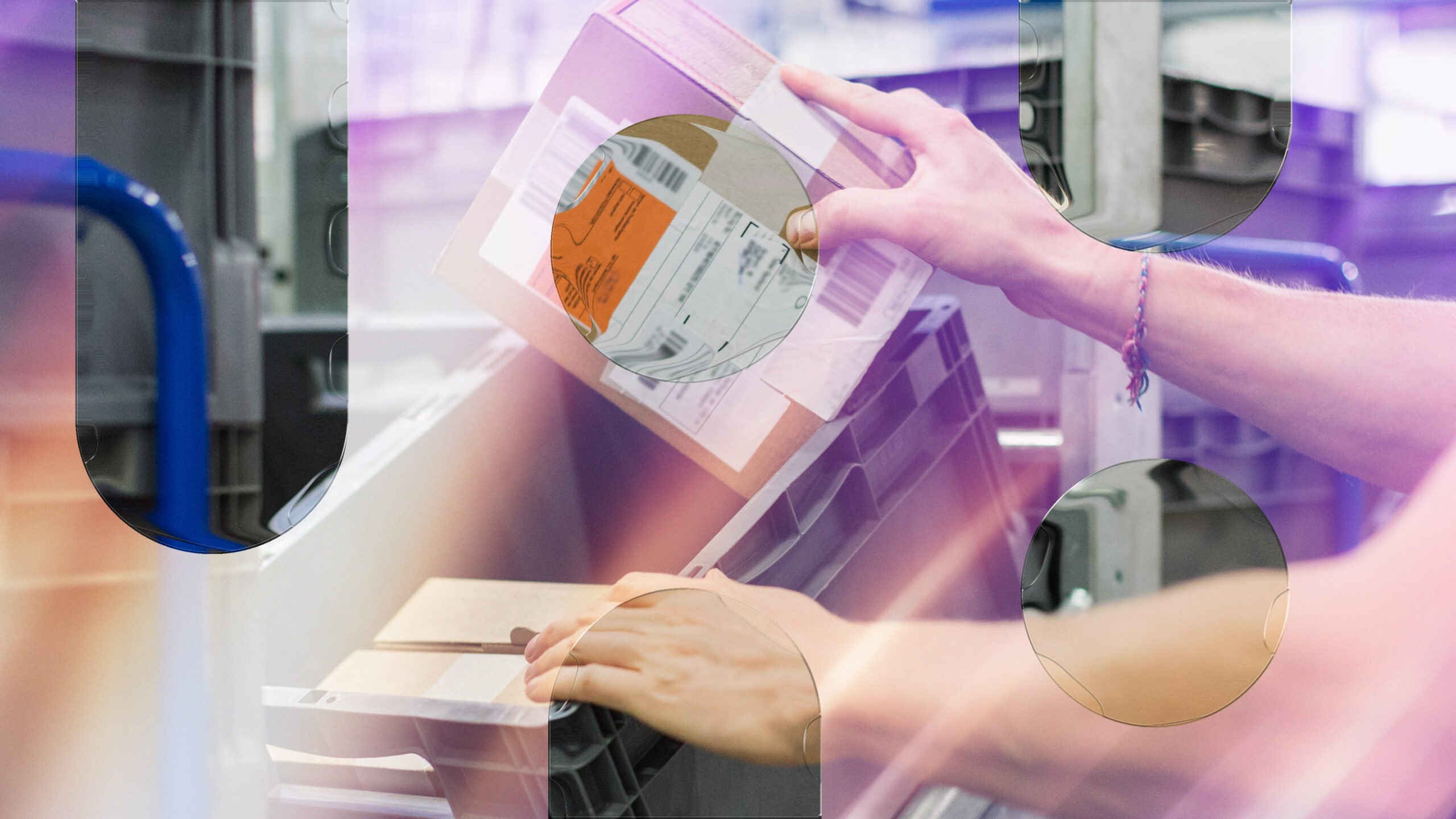Published Jul 3, 2024
How digital sales are shaping the future of B2B commerce

- Digital sales are transforming B2B ecommerce with technologies like AI, big data, and iPaaS.
- Integrating digital sales strategies helps companies streamline operations and stay competitive.
- Despite challenges, the opportunities presented by digital sales in B2B ecommerce are immense.
The ecommerce landscape has undergone a significant transformation over the past decade, driven primarily by advancements in digital sales. But this evolution is not limited to B2C markets; B2B companies are also experiencing a revolution in how they conduct business online.
The way businesses sell products and services to other businesses has evolved from traditional methods to sophisticated digital ecosystems that leverage technology to enhance customer experiences and streamline operations. Understanding how digital sales are transforming B2B ecommerce and how you can leverage these strategies at your organization is crucial to staying competitive in this rapidly changing environment.
The evolution of digital sales in B2B
Unlike B2C sales, the B2B sales cycle and decision-making groups are often more complex and necessitate customized solutions based on the business’s needs, resulting in a longer and more intricate sales process.
Initially, B2B ecommerce was limited to basic online catalogs where businesses could browse products, request quotes, and place orders. However, the rise of digital technology has transformed this process into a more dynamic and interactive experience. Today, digital sales in B2B are highly personalized and data-driven, leveraging advanced technologies such as artificial intelligence (AI), machine learning, and integration platforms as a service (iPaaS).
The role of technology in digital sales for B2B
The adoption of advanced technologies has been a game-changer for digital sales in the B2B sector. Here are some key technologies that are transforming B2B ecommerce:
- Artificial intelligence and machine learning: AI and machine learning algorithms analyze vast amounts of data to understand business needs and preferences. This allows companies to create personalized experiences, optimize pricing strategies, and improve supply chain management. For example, AI can predict future product demand based on historical data, helping businesses manage inventory more effectively.
- Big data analytics: Big data analytics helps B2B companies gather insights from customer data, market trends, and sales patterns. By analyzing this data, companies can make informed decisions about product offerings, marketing strategies, and customer engagement. This data-driven approach ensures that businesses can meet their clients’ demands more effectively.
- Integration platform as a service (iPaaS): An iPaaS enables integration of various systems, applications, and data sources. This is particularly important in B2B, where businesses often rely on multiple software solutions for enterprise resource planning (ERP), customer relationship management (CRM), supply chain management, and more. An iPaaS ensures that all these systems work together seamlessly, reducing operational bottlenecks and enhancing overall efficiency.
- Mobile ecommerce: With the proliferation of smartphones, mobile ecommerce has become a significant part of digital sales. In fact, B2B mobile purchases increased by 250% during the pandemic and continue to be a leading channel for B2B. Mobile apps and responsive websites provide customers with the convenience of managing orders, checking inventory, and accessing support anytime, anywhere. Features like mobile wallets, one-click payments, and personalized notifications further enhance the mobile shopping experience.
- Social ecommerce: Social media platforms have become powerful sales channels even in the B2B space. It’s forecasted that by 2025, a striking 80% of B2B transactions will happen through social commerce. Businesses can now generate leads and engage with prospects through social media posts, ads, and direct messages. Platforms like LinkedIn offer robust tools for B2B marketing and sales, making it easier for companies to reach decision-makers and build relationships.
The impact of digital sales on customer experience in B2B
Digital sales have redefined the customer experience in B2B ecommerce. The focus has shifted from transactional interactions to building long-term relationships with clients. Here are some ways digital sales are enhancing the customer experience:
- Personalization: Personalized experiences are at the heart of digital sales. By leveraging customer data, businesses can offer tailored product recommendations, customized discounts, and relevant content. Personalization makes clients feel valued and understood, leading to higher engagement and loyalty.
- Convenience: Digital sales provide unmatched convenience. Business customers can browse catalogs, place orders, and track shipments 24/7 from the comfort of their offices. Features like fast shipping, easy returns, and multiple payment options further enhance convenience, making online transactions more attractive.
- Customer support: Advanced customer support tools, such as AI-powered chatbots and live chat, ensure that clients receive instant assistance. These tools can handle a wide range of queries, from product information to order tracking, improving the overall shopping experience and reducing the likelihood of purchase delays.
- Engagement: Digital sales channels enable businesses to engage with clients through various touchpoints, including email, social media, and mobile apps. Regular communication and interaction keep customers informed about new products, promotions, and updates, fostering a sense of connection and loyalty.
Challenges and opportunities
While digital sales offer numerous benefits, they also come with challenges that B2B companies must address to fully leverage their potential. Some of the key challenges include:
- Data management, privacy, and security: With the increasing reliance on customer data, ensuring data management, privacy, and security is paramount. A recent study indicates that more than 40% of global financial leaders don’t trust the accuracy of their financial data. It is essential to integrate key finance and accounting systems to prevent inaccurate data caused by manual, error-prone data entry. Additionally, businesses must implement robust security measures to protect customer information and comply with data protection regulations. An iPaaS can assist in this by eliminating manual processes and streamlining the quote-to-cash process, providing secure data transfer protocols, and centralized management of security policies—ensuring that sensitive information is handled securely across various systems.
- Competition: The B2B landscape is highly competitive, with new players entering the market regularly. To stay ahead, businesses must continuously innovate and differentiate themselves through unique value propositions and exceptional customer experiences. An iPaaS can facilitate this by enabling integration of new technologies and third-party services, allowing businesses to quickly adapt to market changes and offer innovative solutions without extensive development time.
- Technology integration: Integrating advanced technologies into existing systems can be complex and costly. Businesses need to invest in the right tools and platforms to streamline operations and enhance digital sales capabilities. Leveraging a platform like an iPaaS can significantly simplify this process by providing a unified platform for connecting disparate systems, applications, and data sources. This not only streamlines integration but also ensures that all systems work together flawlessly, reducing operational bottlenecks and enhancing overall efficiency.
The future of digital sales in B2B
The future of ecommerce for B2B companies is undoubtedly digital. As technology continues to evolve, digital sales will become even more sophisticated and integrated into business operations. Here are some trends that are likely to shape the future of digital sales in B2B:
- AI-driven personalization: AI will continue to play a crucial role in digital sales, with even more advanced personalization capabilities. Businesses will be able to predict client needs and preferences with greater accuracy, delivering highly tailored experiences that drive engagement and loyalty.
- Blockchain technology: Blockchain has the potential to boost transparency and security in digital sales through a decentralized and tamper-proof transaction ledger. By adopting blockchain technology, businesses can elevate the efficiency, security, and transparency of their supply chains, thus minimizing fraud and ensuring more dependable business transactions.
- Sustainability: As businesses become more environmentally conscious, companies will need to adopt sustainable practices in their digital sales strategies. This includes offering eco-friendly products, reducing packaging waste, and implementing sustainable shipping methods.
Conclusion
Digital sales are transforming B2B commerce in profound ways. By leveraging advanced technologies, businesses can create personalized, convenient, and engaging experiences for their clients. While there are challenges to overcome, the opportunities presented by digital sales are vast. As we look to the future, it is clear that digital sales will continue to be a driving force in the evolution of B2B commerce, shaping the way businesses interact and transact.
Looking to learn more about B2B commerce and digital sales? Get your copy of our latest ebook on strategies to future-proof your business and dominate the market in 2024 and beyond.




